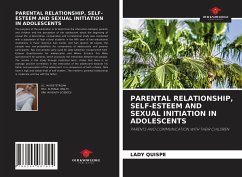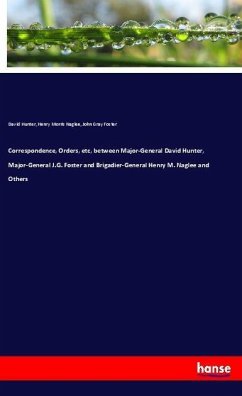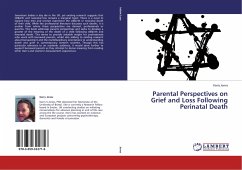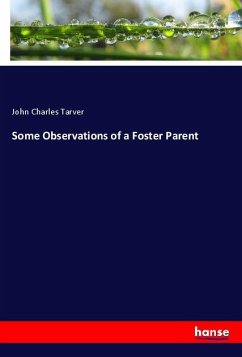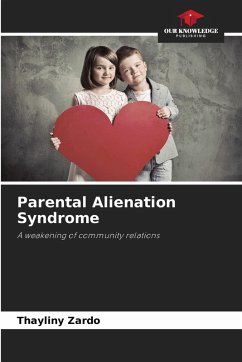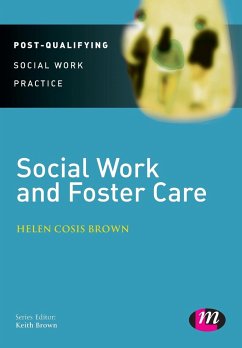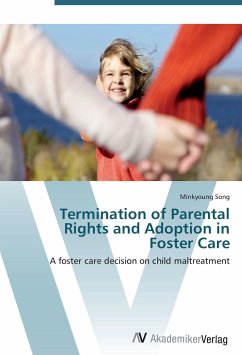
Termination of Parental Rights and Adoption in Foster Care
A foster care decision on child maltreatment
Versandkostenfrei!
Versandfertig in 1-2 Wochen
32,99 €
inkl. MwSt.

PAYBACK Punkte
16 °P sammeln!
Revision with unchanged content. Termination of parental rights (TPR) is not only a matter of the family any more. Now, we face termination of parental rights as one of social institution on what should be guided for child rearing practice and why we should make a decision to intervene the State into the family. This study seeks to provide empirical evidence that examine why and to what extent children who have been exposed to child maltreatment and placed in foster care experience TPR and permanency outcome of adoption. The discussion of this study includes the deliberate discussion on the pa...
Revision with unchanged content. Termination of parental rights (TPR) is not only a matter of the family any more. Now, we face termination of parental rights as one of social institution on what should be guided for child rearing practice and why we should make a decision to intervene the State into the family. This study seeks to provide empirical evidence that examine why and to what extent children who have been exposed to child maltreatment and placed in foster care experience TPR and permanency outcome of adoption. The discussion of this study includes the deliberate discussion on the parent-child relationship and the primary principles of the State intervention into the family in cases of child abuse and neglect with a review on the legal standards/grounds for the involuntary TPR for foster children according to the changes of child welfare policy goals in the American society. Since the ASFA of 1997 was enacted, in particular, it has been widely accepted that TPR proceedings for foster children who cannot be reunified with their natural parents should be pursued. Thus, it can be argued that the involuntary TPR becomes an alternative to family preservation/reunification and an essential mechanism to achieve the permanency outcome for children in foster care. This book is addressed to social workers and policy makers in the child welfare field as well as practitioners in family law.



